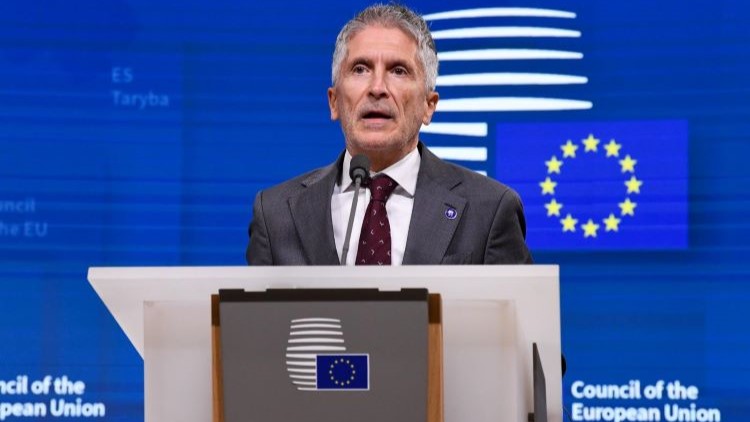The Diplomat
Acting Interior Minister Fernando Grande-Marlaska yesterday welcomed the decision of the 27 EU states to give the green light to the Crisis Regulation, thus overcoming the last hurdle for the resumption of negotiations on the Pact on Migration and Asylum before the end of the Spanish Presidency of the European Union.
“Today we have taken a big step forward on a nuclear issue for the future of the European Union,” declared Grande-Marlaska after the Committee of Permanent Representatives (COREPER) to the EU decided yesterday in Brussels that there is sufficient majority to fix a common position on the crisis mechanism. “With the agreement we have reached on the Crisis Regulation, we are in a position to negotiate the Migration and Asylum Pact in its entirety with the European Parliament before the end of the six-month Spanish Presidency,” he added.
At the Brussels meeting, the 27 reached an agreement on the drafting of a new Crisis Regulation, the last dossier that remained to be finalized to complete the Pact. This position will serve as a basis for negotiations between the Council Presidency and the European Parliament. The new text establishes the legal framework that will enable Member States to adapt to a crisis situation in the field of asylum and migration, as regards the registration of asylum applications and the asylum procedure at the border. These countries will also be able to request solidarity and support measures from the EU and its Member States.
More specifically, Member States facing a crisis situation may request the support of other EU States. Such support may take the form of relocation of asylum seekers or applicants for international protection from the Member State in crisis to other EU States; liability compensation (e.g., the possibility for the supporting country to take over the processing of applications for international protection with the aim of assisting the country in crisis); and financial support or other solidarity measures.
These exceptional and solidarity measures require the authorization of the European Council, in accordance with the principles of necessity and proportionality, and in compliance with the fundamental rights of third-country nationals and persons without nationality.
The Crisis Regulation is part of the new Pact on Migration and Asylum, which consists of a series of texts to reform EU policy in this area. In addition to the Crisis Regulation, the 27 have finalized proposals for the Migration Management Regulation and the Asylum Procedure Regulation.






